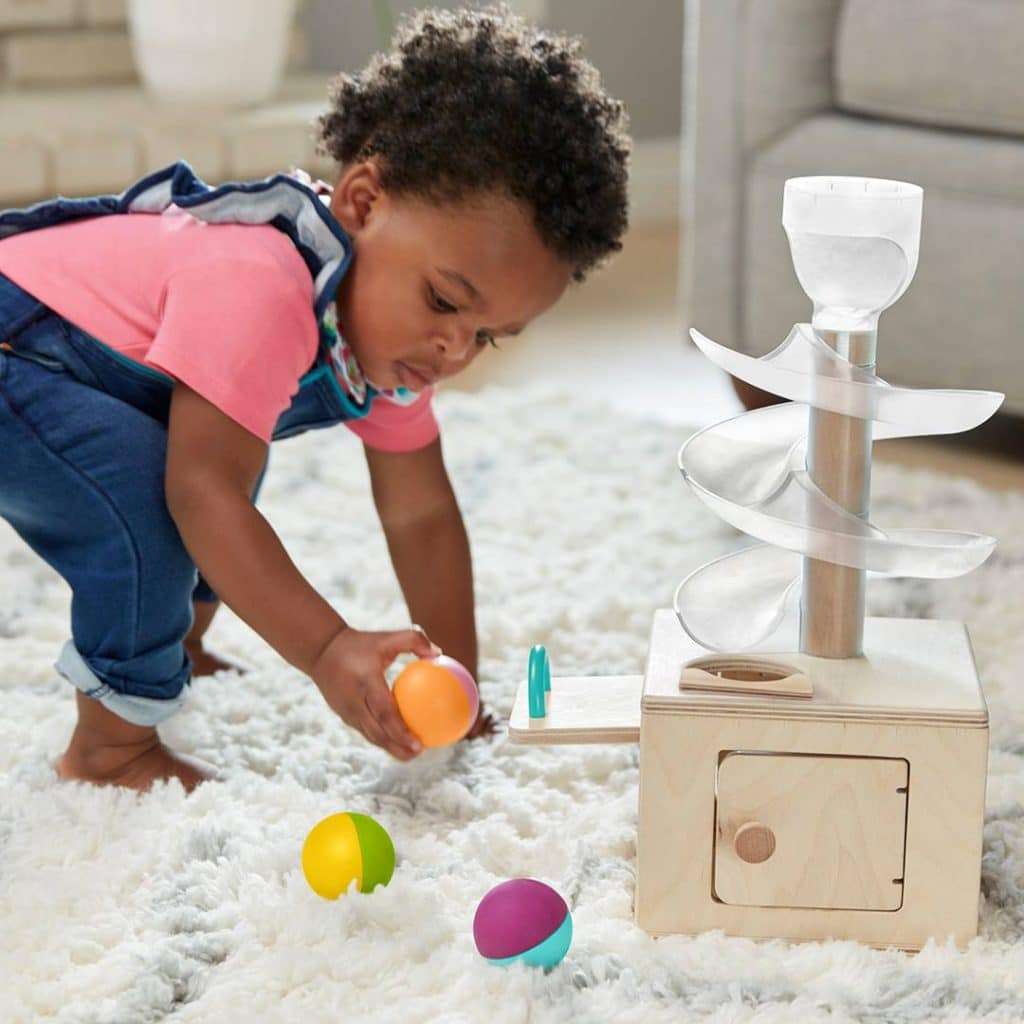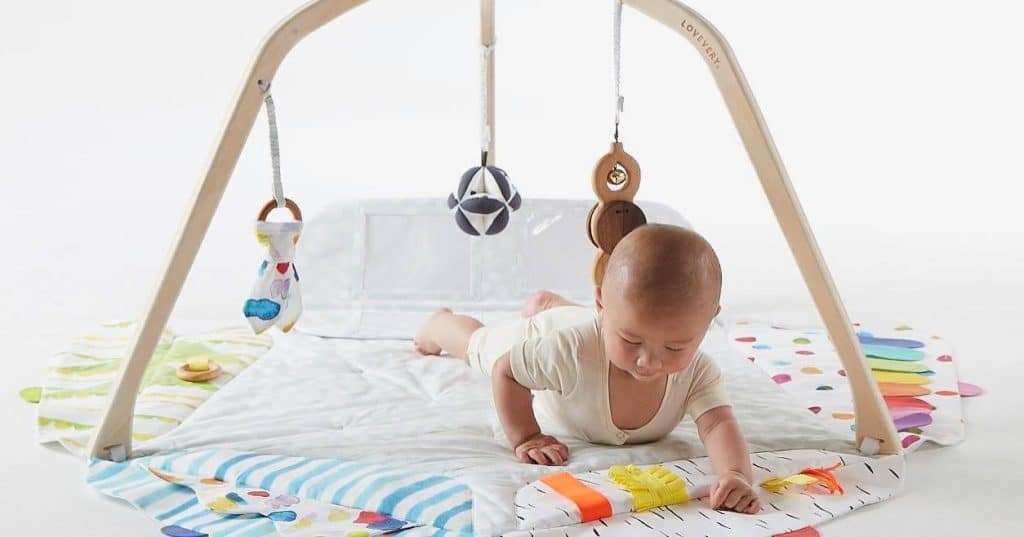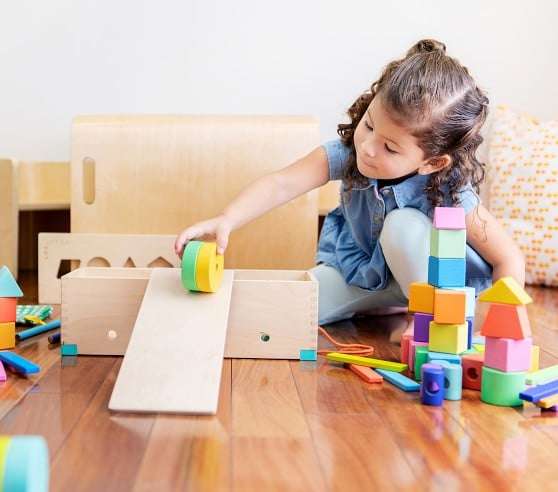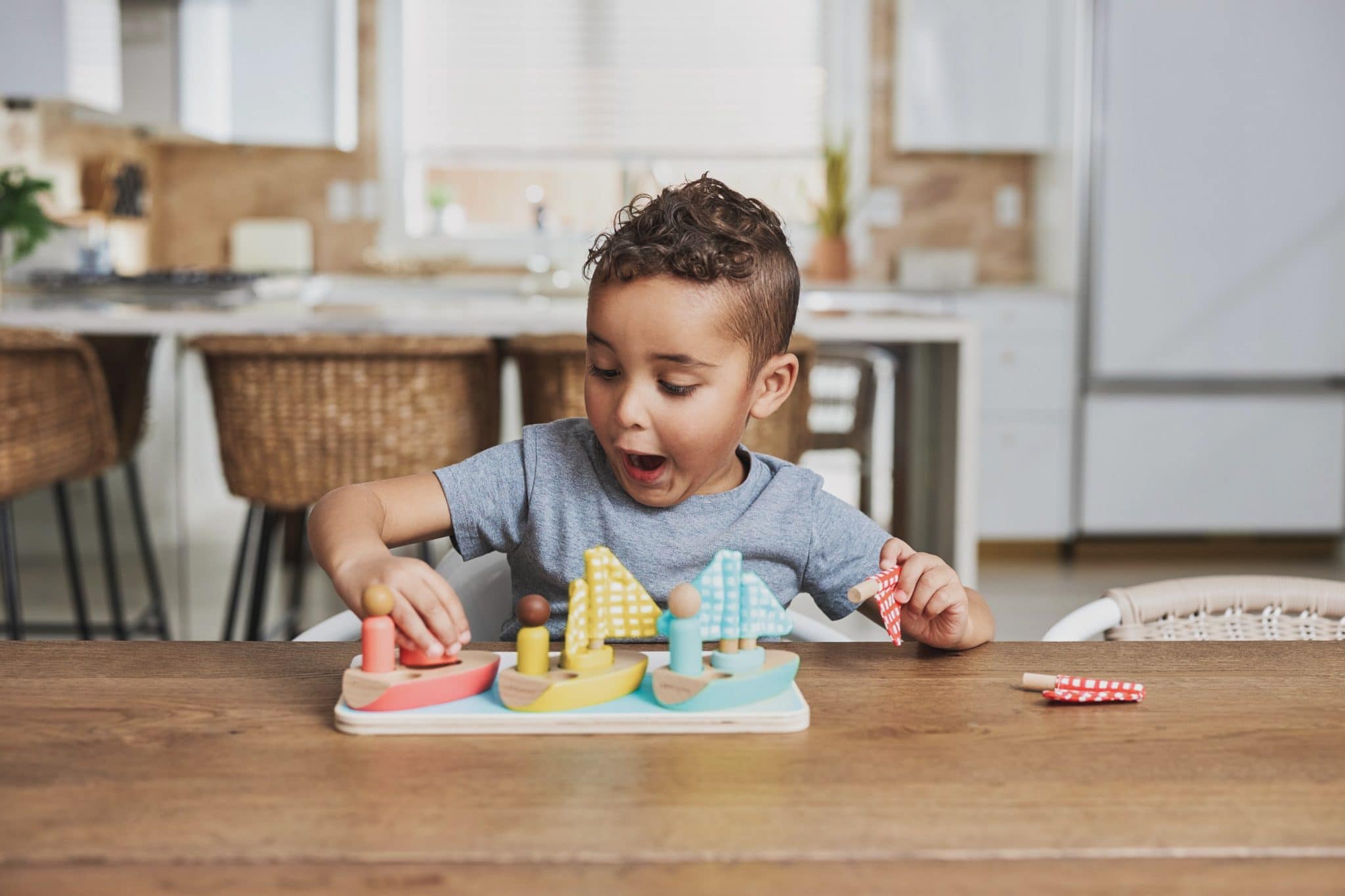Lovevery is invested in early childhood development with minimalist tools for young brains growing up to take part in a complex and changing world.

Eighty percent of the human brain is developed by age three. And according to Lovevery co-founder Jessica Rolph, that begs an important question: what can I do with my baby to make the most of this important time?
For Rolph, co-founder of the organic baby food company Happy Family, the answer was clear—and Lovevery was born.
Age-appropriate play
Lovevery is bringing the subscription model to early childhood development with age-appropriate kits designed to be delivered as your child hits certain developmental milestones. And they come quickly in that first year especially, which can be difficult for parents and caregivers to keep up with. Tools and toys that aren’t meeting a child’s developmental needs can lead to frustration.
The Play Kits are a stage-based program, says Rolph, “which means each family receives a box of original toys and books for children along with information for parents every 2-3 months.” The program begins at birth and goes up to age 4.

“[W]e combine established child development research based on neuroscience with feedback from play studies with real families,” she tells Ethos. “We strip away the conventional trappings of children’s toys (think jungle themes, flashing lights, over-the-top activity centers) and tune into what a child is hungry to learn at each stage.”
While there is no shortage of brands positioning themselves as developmentally appropriate, Rolph says Lovevery is different because the company doesn’t see itself as a toy company, but rather a holistic early childhood development program.
“Our products and books are tailored to each stage of a child’s development from 0 – 48 months. We design original playthings that make the most of a child’s desire to learn.”
One example she gives is the fascination children from age six months to three years have with containment.
Early childhood development
“Their learning starts with the ‘pots and pans’ phase of dumping and filling containers, then evolves to transporting things around the house, and eventually to storing and collecting small objects. We support each stage of this progression by giving children tools instead of toys.”
This, Rolph say, can be enhanced by an appropriate tool. “For example, if you give a baby a tube and various objects to drop and pull through it, they will have a much richer, deeper understanding of the containment concept. The clear plastic tube in The Explorer Play Kit is a favorite for this reason,” she says.
Parents and caregivers are also looking for a smarter, more informed approach to supporting their child’s development, Rolph says. The company’s Play Guides and App that accompany its subscription model provide expertise from neuroscientists, speech and language experts, Montessori educators, occupational and physical therapists, and social psychologists to help foster this development.
Lovevery’s ethos also incorporates sustainability and making products that are built to last.

“We want to ensure everything we make has the longest life possible—so it can be passed on to another family or made complete again. We thoroughly test our products to make sure they can stand up to lots of play, and when that one piece inevitably gets lost, we replace it. Our products are timeless, and the designs are grounded in decades of educational research,” she says.
The products are shipped carbon neutral with efficient packaging aimed at reducing waste, and they’re crafted with responsible materials including FSC-certified wood, organic cotton, OEKO-TEX fabrics, handcrafted felt, recycled paper, soy-based ink, water-based paints, and even bio-based plastics.
And, Rolph says that “by 2025, 90 percent of the materials used in Lovevery’s products and packaging will be made from renewable, bio-based, or recycled materials that are verified by third parties.”
Rolph says the climate issue is “always on our minds.” Lovevery has made a commitment to sustainability that is “grounded in our commitment to families. We want to preserve what we’ve been given and pass it down to our children. By 2030 we will achieve net zero carbon in every possible part of our supply chain.”
There’s more to that commitment, too. According to Rolph, children are instinctively curious about the natural world.
Future minds
“Babies startle when the wind blows across their face, and are riveted by dark branches against a light sky. Toddlers will watch insects crawling across the pavement for several moments at a time, and love to point at the moon and say its name. This kind of stimulation from the natural world helps build the synapses—connections between cells in a child’s brain—that are crucial to cognitive development,” she says.
“In an age of overstimulation and constant input, toys that promote a quieter and more sustained play environment support a young child’s cognitive development.”
Rolph points to the natural materials used in the products, especially wood. A 2017 study found that “contact with wood induces physiological relaxation,” she says. “More specifically, actually touching the wood physically calms children down, which means playing with wooden toys can have a neurological impact on a child’s brain.”

Rolph says there’s another reason families are so relieved when they discover Loverery because of its minimalist approach.
“Our culture pushes abundance, but fewer is better when it comes to toys. Research supports this: a study compared how children played when offered 4 vs. 16 toys in a room. Toddlers who were offered 4 toys engaged more meaningfully with each, playing in a deeper way and spending more time exploring than toddlers who had 16 available toys,” she says.
“Because some skills can take a year or more to build, and because Lovevery introduces items at the beginning of a child’s range of interest, toys from earlier Play Kits can be rotated and become new again. Many parents tell us that Lovevery offers them a chance to have ‘fewer, better things’ and live a more minimalist lifestyle.”
Learn more at Lovevery’s website.


